Archive of articles posted to the website.
By Joyce Hubler
Detective (ret.)
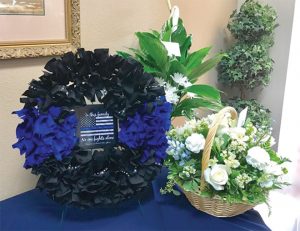
The Foundation of Retired Police Officers was founded in 2016 by retired and current Phoenix Police officers as well as concerned citizens. The Foundation was created because it was recognized that officers who have retired with moderate pensions will, over time, feel the financial ravages caused by increases in cost of living and health care, including the price of medicines and food. Due to hospitalizations or ill health, many senior officers find themselves alone, with no place to turn when they need help unexpectedly. This is when the Foundation of Retired Police Officers steps in and shows respect and love by offering assistance to those who once walked the thin blue line with pride and honor.
Organizations that have assisted the Foundation of Retired Police Officers are: Phoenix Law Enforcement Association (PLEA), Phoenix Police Sergeants and Lieutenants Association (PPSLA), Dubina Brewing Co. (Jan Dubina), Phoenix Police Museum and Ameriprise Financial (Steve Binder).
The Foundation’s Board of Directors are:
- Stan Hoover, Executive Director
- Joyce Hubler, Executive Director
- Chuck Boyd, Executive Board
- Becky Rice, Executive Board
- Mike Abbate, Board of Directors
- Joe Clure, Board of Directors
- Vincent Cole, Board of Directors
- James Riley, Board of Directors
- Sherry Sparks, Board of Directors
- Connie Tyler, Board of Directors
- Tom Van Dorn, Board of Directors
The Advisors to the Board are:
- Dale Norris, Norris Law Firm
- Todd Ruggeri, FORPO Webmaster
- Ronda Stika, Arrowhead Tax Consultants
As an all-volunteer organization, we treasure each and every one of our volunteers. Two of these very treasured volunteers, retired Phoenix Police Department dispatchers Margaret Cassidy (widow of Ed Cassidy #307) and Ruthie Cooper (widow of Terry Cooper #2202), are tireless in their efforts to help others. They designed a beautiful wreath that was presented to the next of kin at a retiree’s memorial ceremony. The center of the wreath included an American flag with a thin blue line and the Foundation of Retired Police Officers’ motto: “In this family, no one fights alone.”
This act is only the tip of the iceberg of how these two ladies have given their time to those in need, but it is worth mentioning for all the comfort they have brought to survivors’ families.
Thanks to all who support the Foundation through tax-deductible donations and/or volunteering.
For more information on how you can get involved, please visit our website at www.foundationofretiredpoliceofficers.com.
By Len Zingg
Lieutenant (ret.), #954
I worked the front desk with Roy (#79) in the mid-’60s. Although we were totally different personalities, we got along great. I admired all the old-timers who paved the way for us rookies. I was awed and even a little envious of their experience. That must have been one hell of a ride they were on during the early days of law enforcement.
Roy was one of the most colorful individuals the Department had at the time. Every day was an interesting adventure, because I never knew which “Roy” would show up. Would it be the laid-back public servant who politely asked, “May I help you?” Or would it be the volatile “Get the hell out of my face!” cop? Either personality was a source of entertainment.
Sometimes, when there was a lot of foot traffic through the locked door that divided the jail elevator from the public hallway that ran past a portion of the front desk, someone, usually a detective, would prop the door open so they wouldn’t have to wait to get buzzed through by one of the desk personnel. Captain Hetz would raise hell with the desk officers every time he walked by and found this door open.
No matter who was working the desk at the time, we always blamed the open door on Roy Lansing, even when he wasn’t there. Hetz would give Roy hell, and Roy’s only comment was “I don’t give a damn.” It got to be a regular thing between Hetz and Roy, until it was more of a joke than anything else. I think Hetz realized that it couldn’t have been Roy’s fault every time, but he went along with the tradition of giving him hell.
Sometimes, Roy would answer the phone and be as polite as anyone. There were other times, however, when he’d pick up the phone and bark, “Police. Waddaya want?” Then, he’d look at me and grin. I sometimes wondered whether he just wanted to provide a shock factor for me as a young officer.
I recall one incident in which the hot phone rang and Roy picked it up. A man reported a shooting. Everything seemed to be going smoothly at first, but shortly into the conversation I detected an impatience in Roy’s voice and a rise in volume.
“What was he shot with?” Roy asked.
“A gun,” the caller angrily yelled. “What the hell else would he have been shot with?”
“How the hell do I know if it was a pea shooter or a shotgun?” Roy yelled back.
The conversation escalated until Roy said, “And the same to you, you son of a bitch.” He slammed the phone down.
All this went on as Chief Paul Blubaum was walking by on his way to his office, which at the time was across the hall from the front desk.
“Paul,” Roy yelled, “when are you going to put me in charge of this Goddamned place so I can straighten it out?”
“Soon, Roy, soon,” Blubaum replied.
When the hot phone immediately rang again, I grabbed it before Roy could pick it up. It was the same shooting, but a different caller than the one Roy had hung up on. I was thankful for that.
Roy would often yell when the Chief walked by, “Paul, when are you gonna put me in charge of this Goddamned place?”
Sometimes Blubaum would come by the desk and say, “I’m going to be gone for a few days, Roy. I’m leaving you in charge.”
“About damn time you’re leaving someone in charge who knows what the hell they’re doing,” Roy would say.
But Blubaum wasn’t always that forgiving of others. I was working with another desk officer one day when Blubaum walked up to one of the windows. I was on the phone with a complainant, but the other desk officer was just having a casual conversation with another employee at another window. I didn’t think the other desk officer knew the Chief was waiting, so I walked over, poked him and nodded at the Chief.
“I see him,” the officer said, but he continued his conversation without seeing what the Chief wanted. When I finished my phone call, I asked the Chief if I could help him. He asked if I would help carry some boxes out to his car, which I did. That very night, the desk officer who ignored the Chief was transferred to shift three in south Phoenix.
While Roy would sometimes go ballistic, he would also have his quiet moments. He was an incredible artist and spent many free minutes drawing things, usually on a complaint card — the 3-by-5 cards that complaint personnel sent on a conveyor belt to radio in order to dispatch an officer. Roy would draw cactuses, horses, cowboys, cow skulls and a variety of desert scenes. I urged him on many occasions to make some drawings on paper that he could save. I marveled at his artistry and told him so. Roy would just look at me, and without saying a word, he’d drop the complaint cards with his incredible drawings into the wastebasket. I retrieved some of his complaint-card drawings from the wastebasket, but I regrettably lost them somewhere along the way.
Since Roy had been on the Department far longer than me, I was always curious as to how things were in the early days. I couldn’t get enough of the history lessons Roy would teach. One of the stories Roy told was about when he, Dick Porter and Herb Neal were assigned to patrol South Mountain on horseback.
“Those fools actually rode around in the heat,” Roy said. “I found me a shady bush and took a nap.”
“Yeah,” I replied, “but those fools are now assistant chiefs.”
Roy looked at me as if I didn’t understand what he had said. “Yeah, that’s what I’m saying. They’re fools. I was smart enough to remain a patrolman.”
One night when I was riding the wagon, we received a call of a family fight at a residence not too far from the station. We pulled up to find a man and woman rolling around on the lawn. Roy and his wife were having another one of their friendly marital arguments. Both had had a little too much to drink. We dusted them off and helped them into the house. You did things like that in those days.
I think of Roy on occasion, and I wonder how he saw the world. Was his attitude contrived, or was it real? How could a person have such incredible talent and quietly draw so many beautiful things one minute, and the next minute scream at an angry caller? He was a marvel of complexity, an enigmatic compilation of talent and goofiness. But then, I guess we all are. Rest in peace, Roy.
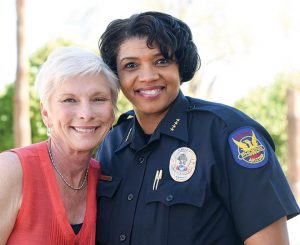
By Joyce Hubler
Detective (ret.)
On Saturday, March 11, the Foundation of Retired Police Officers hosted the fundraiser picnic for the Phoenix Police Museum. For the fourth year in a row, our reunion picnic was a huge success — 2017 beat all previous picnic attendance numbers, with 328 signed-in members. This number does not include children, grandchildren or dogs. Many attendees came from out of state. Tom Yarborough, #2455, received a special museum coin and an Outback gift certificate for having traveled the farthest, from his home in Florida.
This year we raised almost $8,000, but that is not the final figure. Credit card sales from the merchandise table at the picnic and from the gun raffle ticket sales at the museum are not included in that figure. In addition, two beautiful gun donations came in a little late for the printing of the picnic tickets, and those are being raffled off July 4. Tickets are available for purchase at the Phoenix Police Museum (see flyer on page 19 for more info). Thank you to our gun donors who made this possible: Richard Twitchell, #513; Steve Proctor, #2054; Terry Kobza, #3041; and a special thanks to Dave Lane, #2918, who has donated a special gun for every one of the four years we have been hosting this picnic.
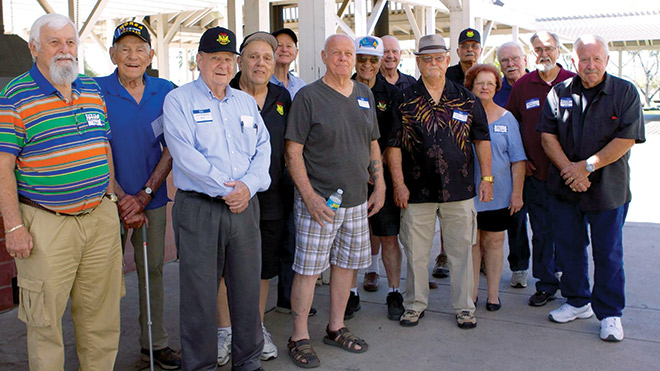
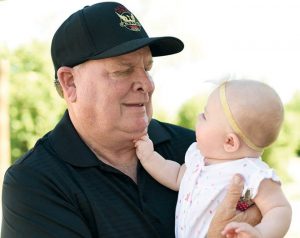
Many thanks to everyone who donated to our merchandise raffle. That alone brought in donations of over $3,000. Special thanks goes out to the volunteers who work so hard to put these picnics together: Nancy and Cave Golding, #2013, (raffle chairs); Fran Garcia, #2542; and Toni Bear, #5311. Thank you to Marcia Bueche Florian, #2877, and Connie Tyler for their outstanding photography and to Cleo Lewis for giving a moving invocation and being our raffle announcer. Additional thanks to Ed Catlett (membership sign-in), #2476, and his committee: Ruthie Cooper; Margaret Cassidy; Dudley Gibson, #942; Richard Twitchell, #513; Bob and Duffy Cropper; Diane Martin, #4378; Carol Campbell; Larry (#1439) and Carol Stubbs; Lisa Constein Schultz, #3725; and Jim Alberts, #3406. Beverage sales were hosted by Sherry Sparks and Jack Locarni, #2579.
Of course, the most special thanks of all goes to those of you who help support our efforts by attending, purchasing tickets and reaching out to one another. Our family in blue, thank you.
Our next Phoenix Police Reunion Picnic is scheduled for March 10, 2018. You do not have to be a retiree to attend. This will be our fifth annual picnic and promises to be the biggest and best ever.
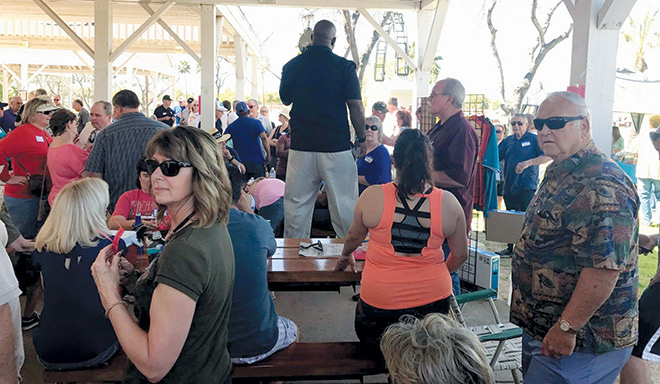
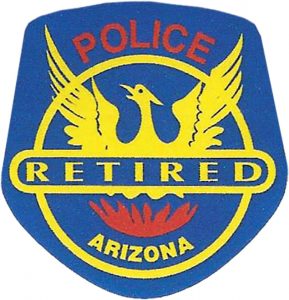 Early in 2016, a group of retired and current Phoenix police officers created the Foundation of Retired Police Officers. The Foundation received its incorporation and 501(c)(3) designation as a nonprofit.
Early in 2016, a group of retired and current Phoenix police officers created the Foundation of Retired Police Officers. The Foundation received its incorporation and 501(c)(3) designation as a nonprofit.
The current Board of Directors is made up of active and retired officers, as well as civilians and community leaders.
The purpose of the Foundation is to provide assistance to ill or injured retired members of the law enforcement community, including but not limited to police officers, dispatchers and other support personnel as the Foundation Board would deem appropriate.
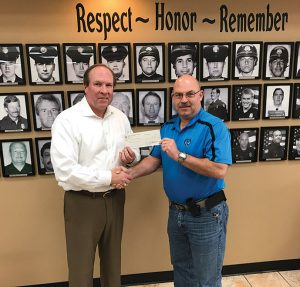 The Foundation believes public safety retirees have medical, physical, psychological and material needs that, at times, are not met by the current benefits of the city or state. We have developed this Foundation as a support group to help meet unexpected or emergency needs for these retirees.
The Foundation believes public safety retirees have medical, physical, psychological and material needs that, at times, are not met by the current benefits of the city or state. We have developed this Foundation as a support group to help meet unexpected or emergency needs for these retirees.
As a brand-new foundation, we have contacted several organizations and individual retired Phoenix police officers and dispatchers asking for help. The Foundation appreciates the support of PLEA and PPSLA, as well as the many citizens and retirees who have made tax-deductible contributions. Because of that generosity, we have already been able to help two retired officers.
The Foundation is currently forming an outreach program to benefit widows and widowers of retired officers, a long-forgotten group of our family.
If you have any questions or would like to donate, please contact us at foundationpolice@aol.com or (623) 465-9569.
By Joyce Hubler
Detective (ret.)
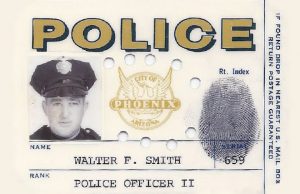 I was on the Douglas Police Department in Douglas, Arizona, from 1955 until 1959 and decided to apply for the Phoenix Police Department in the latter part of 1959. At that time, you did a physical fitness test, then made the choice of being a fireman or a policeman, followed by the written and oral tests after you made your decision.
I was on the Douglas Police Department in Douglas, Arizona, from 1955 until 1959 and decided to apply for the Phoenix Police Department in the latter part of 1959. At that time, you did a physical fitness test, then made the choice of being a fireman or a policeman, followed by the written and oral tests after you made your decision.
I was hired in November 1959 and was issued serial #659. I attended the Academy for a couple of weeks, then was assigned to direct traffic during the Christmas season in downtown Phoenix. At that time, there was only one mall, Park Central, so most of the shopping was in the Downtown area. During my assignment, I could not believe the amount of traffic and the drivers’ total disregard for my traffic direction. A large percentage of them did what they wanted to, regardless of my efforts, then to compound matters, it began to rain! After the first week in the rain, I came down with the flu, but declined to take off work, as I was afraid I would lose my job!
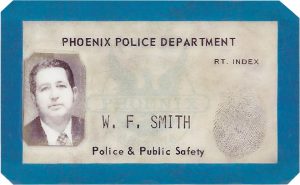 After this assignment, I was assigned to the Traffic Bureau, where I rode with a training officer. After a couple of weeks, I was cut loose on my own. At the time, the Phoenix Police Department had about 350 or so officers. Our patrol cars had no air-conditioning or seat belts. We did have a two-way radio, but once you left the vehicle, you had no communication with the station. Cellphones were unheard of, and we did not have portable radios, either. Our uniforms were all wool and hot during the summer.
After this assignment, I was assigned to the Traffic Bureau, where I rode with a training officer. After a couple of weeks, I was cut loose on my own. At the time, the Phoenix Police Department had about 350 or so officers. Our patrol cars had no air-conditioning or seat belts. We did have a two-way radio, but once you left the vehicle, you had no communication with the station. Cellphones were unheard of, and we did not have portable radios, either. Our uniforms were all wool and hot during the summer.
During my time in the Traffic Bureau, I was given several special assignments, one of which was in an unmarked car chasing speeders and street racers up and down Central Avenue. That was a very interesting assignment, as there was a lot of activity on Central Avenue in the 1960s. I was then assigned to the hit-and-run detail, where one of my duties was to work all of the serious injury and fatal traffic collisions.
I remained in the Traffic Bureau until July 1961, when I was transferred to the General Investigations Bureau as a detective. I performed all the regular assignments as a detective, and then I was assigned to the burglary detail. While assigned there, I was told it would be a permanent assignment, meaning I did not rotate shifts or details. I was designated as a training officer during my tenure in the burglary detail, and I trained many officers who went up the promotional ladder. I was content to stay on the street, and took the sergeant’s test one time due to an order from the Chief that everyone eligible had to do so. I just signed my name and turned in the blank test. I became the first and only (to my knowledge) safe burglary investigator on the Department. This subjected me to 24-hour on-call duties where I earned a lot of overtime. I encountered many interesting suspects during this assignment, both local and from other areas.
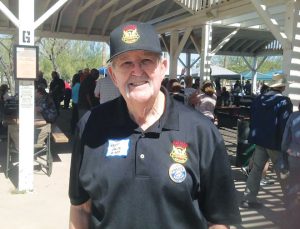 Later on, I was assigned to a special squad that was formed, the Felony Squad, which entailed going undercover and investigating any major felonies assigned to the detail. Upon completion of that assignment, I was transferred back to the burglary detail, ending up at the Union Hills Precinct until I retired in April 1985. In total, I spent about 25 years as a burglary detective.
Later on, I was assigned to a special squad that was formed, the Felony Squad, which entailed going undercover and investigating any major felonies assigned to the detail. Upon completion of that assignment, I was transferred back to the burglary detail, ending up at the Union Hills Precinct until I retired in April 1985. In total, I spent about 25 years as a burglary detective.
After being retired for about six months, I was asked to work in the Internal Affairs division of the Arizona Department of Corrections. I accepted their offer and put in five more years as an investigator/supervisor.
In 1990, I decided to retire to Strawberry, Arizona, where my wife and I already owned a cabin and she had contracted building a home while I was with DOC. We lived there for about 25 years but due to my wife’s health issues, we returned to Phoenix in 2013.
Looking back at my law enforcement career, I feel that I was very fortunate in that I was only involved in one shooting incident and suffered no serious injuries. I met a great bunch of people, mostly on the Phoenix Police Department. I served as a patrolman, traffic officer, acting sergeant in traffic and burglary, detective and supervisor. In addition to the many interesting experiences during those 35 years as a law enforcement officer, I watched the city grow from a mid-sized town to a large city with freeways, large buildings and major population growth.
By Joyce Hubler
Detective (ret.)
I am very excited and very proud to introduce you to the Foundation of Retired Police Officers, a 501(c)(3) charity.
This has been a dream of mine for over 16 years: to have an organization that would be in a position to help police retirees if they had a need, whether it be medical, transportation, or assistance while temporarily or permanently incapacitated. It would not matter if the retiree still lived locally, or had moved out of state. It would be modeled somewhat after PLEA’s TAPS (Tuition Assistance for Police Survivors) program.
A very generous benefactor offered to help me with this endeavor several years ago. Every penny of the costs of the incorporation and obtaining the federal approval for the 501(c)(3) has been donated to the foundation. Incorporation in the state of Arizona was obtained in May 2016. Our first board meeting was held June 11, 2016, and the 501(c)(3) status was approved by the IRS on July 11.
I will be forever grateful to the people willing to give of themselves, who believe in the dream and volunteered to serve on the board. Thank you to these great folks #7096. They will mold the foundation for the future of retired Phoenix officers, and hopefully, as the foundation grows, to other police retirees. I thank them for believing and helping.
I would like to specifically thank our original board of directors and several others who have shown interest in this organization and its purpose. They are, in no particular order, Chuck Boyd, Vincent Cole, Tom Van Dorn, Stan Hoover, Becky Rice, Joyce Hubler, Connie Tyler, Dale Norris, Joe Clure, Joe Yahner and Phil Gordon.
